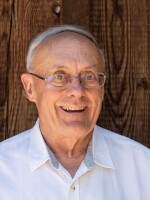Russia continues to send its formidable military forces into Ukraine, and the music community in Aspen is paying attention.
The Aspen Music Festival and School is playing host to musicians from more than 40 countries this summer, including people from Ukraine and its neighboring countries.
And musicians continue to perform even as bombs are falling on their families and houses back home.
What place does music have in a time like this?
Alan Fletcher, CEO and president of the festival and school, reminds us of the many great composers and musicians with ties to Ukraine, including violinist David Oistrakh, pianist Sviatoslav Richter, Prokofiev and Tchaikovsky.
The festival's schedule this summer features not only Ukrainian composers — notably Prokofiev every Friday evening in Harris Hall — but Ukrainian performers.
One of these was violinist Vadim Gluzman, whose July 19 recital with pianist William Wolfram included music by Ukrainian composer Valentin Silestrov.
A recent Friday performance spotlighting Prokofiev at Harris Hall featured Ukrainian pianist Illia Ovcharenko.
And when Ukraine’s war began, Polish conductor Piotr Waclawik was working as assistant conductor for a production of Puccini’s "Turandot" at the Krakow Opera. He is now spending this summer at the festival.
He reports there were not only many Ukrainians in the Polish city, but many members of the cast, chorus and production team were Ukrainian, with family members back home.
“It was a really tragical moment,” Waclawik said.
As bombs were falling on their families back home, the opera company collected food and supplies to help and the soloists were driving to the border to pick up Ukrainian family members. And all of this was happening while the cast and crew were preparing a performance of "Turandot."
We can all feel horror at the situation, but for some at the Aspen festival, events struck closer to home for some than for others.

Violinist Diana Adamyan, is Armenian, and she recently came to Aspen as a soloist for Armenian composer Aram Khachaturian’s Violin Concerto.
Armenia was at war with Azerbaijan in 2020. Adamyan’s family was living not far from the front lines, and some in her family died in the conflict. And she recalls how Armenians as young as 17 were involved in the fighting.
“There was a huge amount of, you know, boys that just, just went and didn’t return,” said Adamyan.
The war in Ukraine, which began in late February, has brought back Adamyan’s own memories, including those of family members who died in that conflict, and her sympathies for an embattled people.
“As an Armenian and as a person whose country was in such a kind of situation two years ago, it's very hard for me now to see what's happening, and to remember my feelings when my family was in Armenia, and we had this war,” Adamyan said. “And I have lots of Ukrainian friends and also Russian friends. They're all for peace.
“And I'm thinking now that what I was doing two years ago, for Armenia, we just need to speak up with music, because the music is the only thing that makes people forget about the pain and just to be who they are.
“So we need to speak up with the music and we need to speak up for the peace.”
But can music effectively speak up for peace?
Adamyan is far from the only musical artist to suggest that it can.
Guitarist Sharon Isbin, who performs frequently in Aspen, believes that if a musician comes from a place of love, audiences can receive that and it can help them make more peaceful choices in the world.

However, Ukrainian pianist Illia Ovcharenko is more skeptical.
His family’s home has been bombed, and several family members have become war refugees while the men have been drafted into the war effort.
For him, music versus tyranny is an unequal contest.
Does he feel music can be a force for peace in Ukraine?
“I want to believe that," Ovcharenko said. "I truly want to believe that, and want it to be true. But, you know, with this guy (Russian President Vladimir Putin) in power, I believe nowadays it’s impossible.”
One might not be able to actively stop the war with music, but one can seek to ease suffering.
Fletcher stepped up early. He programmed the Ukrainian national anthem at the last minute for the first orchestral concert with Marin Alsop conducting, a symbolic gesture that brought Ukrainian musicians here to tears.
“A lot of us associated with the festival, on the faculty, etc., have been deeply involved with this," Fletcher said. "I think all of us in the arts should be dedicated to upholding the identity of Ukraine as a culture.”
Upholding a cultural identity is something in which performers, stage crew, administration and even audience members can all participate.
Might that lead to greater understanding of one another?
Perhaps not, although it can certainly offer a more encouraging view of some small corner of the world.
We’ll let Waclawik, the Polish conductor, have the final word:
“When we’re doing music, we’re like the other family, like the international community," he said. "And I think that’s the most beautiful thing in being a musician, because we can get along despite the cultural differences, with different languages and different parts of the world we come from.
"So that’s why I love doing music, because I can just go escape to the different world sometimes. I believe it’s possible to bring peace with the music.”




